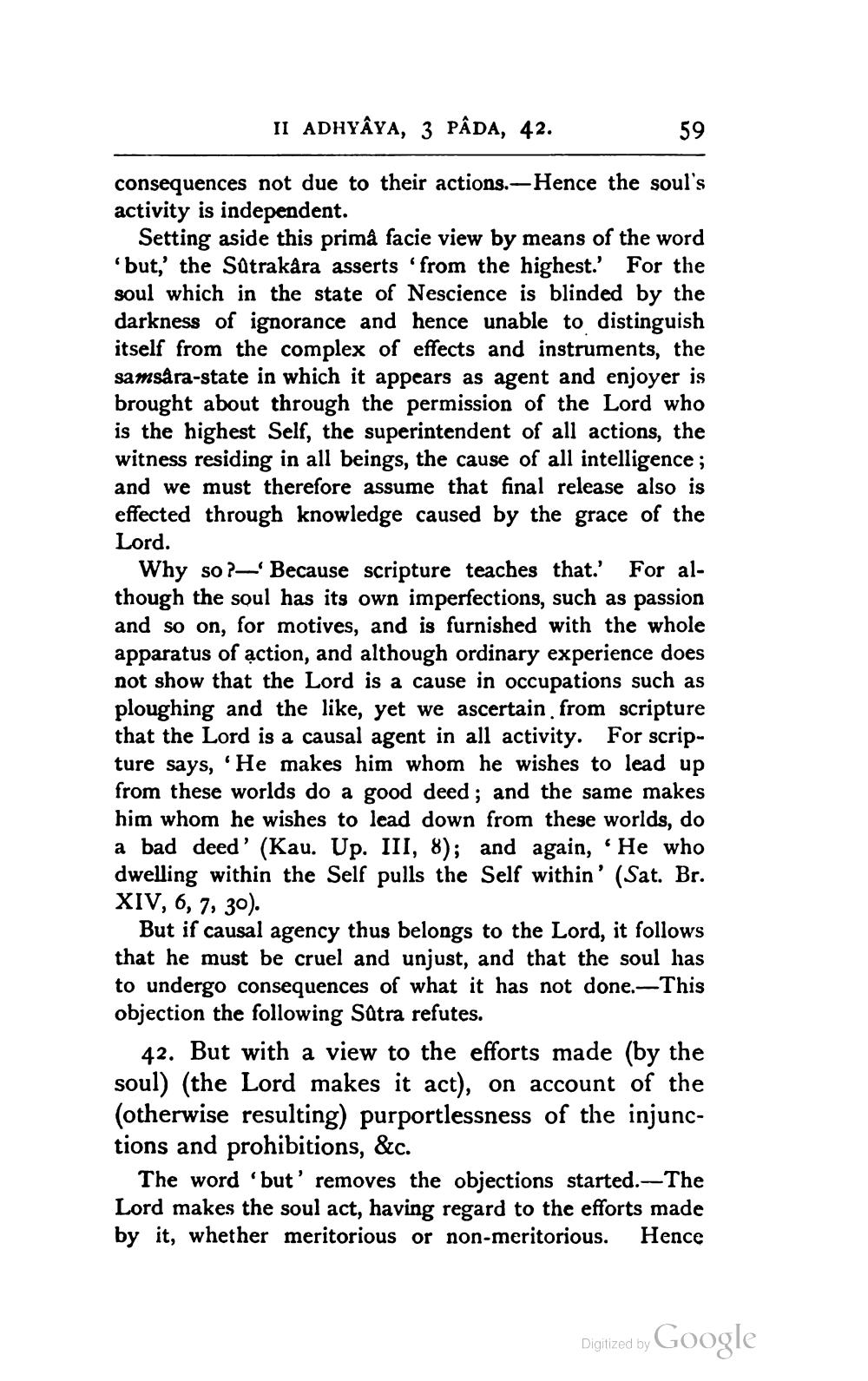________________
II ADHYAYA, 3 PÂDA, 42.
59
consequences not due to their actions.--Hence the soul's activity is independent.
Setting aside this primâ facie view by means of the word but,' the Satrakâra asserts 'from the highest.' For the soul which in the state of Nescience is blinded by the darkness of ignorance and hence unable to distinguish itself from the complex of effects and instruments, the samsara-state in which it appears as agent and enjoyer is brought about through the permission of the Lord who is the highest Self, the superintendent of all actions, the witness residing in all beings, the cause of all intelligence; and we must therefore assume that final release also is effected through knowledge caused by the grace of the Lord.
Why so ?— Because scripture teaches that.' For although the soul has its own imperfections, such as passion and so on, for motives, and is furnished with the whole apparatus of action, and although ordinary experience does not show that the Lord is a cause in occupations such as ploughing and the like, yet we ascertain from scripture that the Lord is a causal agent in all activity. For scripture says, 'He makes him whom he wishes to lead up from these worlds do a good deed; and the same makes him whom he wishes to lead down from these worlds, do a bad deed' (Kau. Up. III, 8); and again, “He who dwelling within the Self pulls the Self within' (Sat. Br. XIV, 6, 7, 30).
But if causal agency thus belongs to the Lord, it follows that he must be cruel and unjust, and that the soul has to undergo consequences of what it has not done.—This objection the following Satra refutes.
42. But with a view to the efforts made (by the soul) (the Lord makes it act), on account of the (otherwise resulting) purportlessness of the injunctions and prohibitions, &c.
The word 'but' removes the objections started.—The Lord makes the soul act, having regard to the efforts made by it, whether meritorious or non-meritorious. Hence
Digitized by
Digilzed by Google




